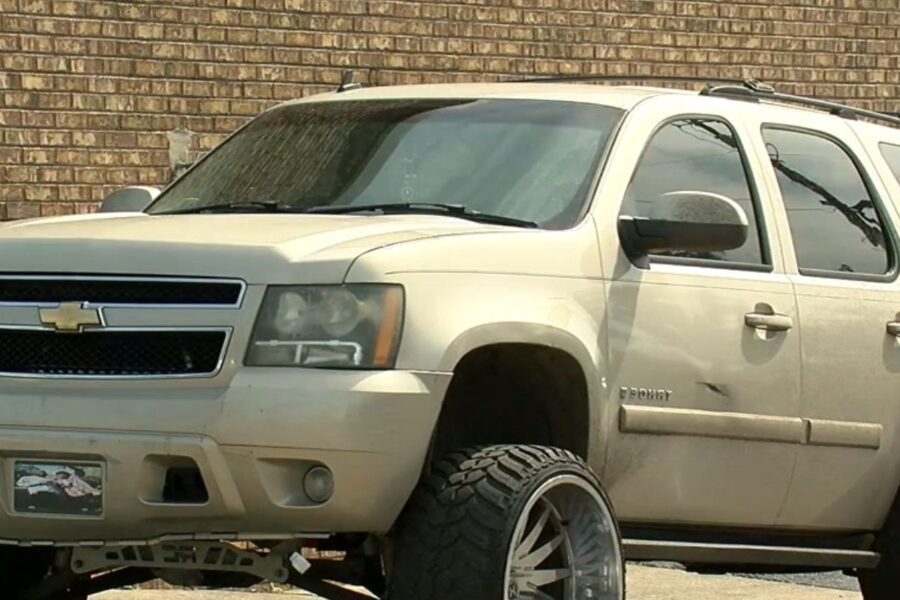Alabama House Considers Prohibition: In a move that has sparked debate among Alabama lawmakers, the consideration of a potential prohibition on squatted trucks has garnered significant attention.
The proposed legislation seeks to address a growing trend on state roads, where these modified trucks have drawn both admiration and concern.
As discussions unfold within the Alabama House, the implications of such a ban, including its enforcement and impact on public safety, are under scrutiny.
The intersection of individual freedoms, road safety, and legal boundaries in this matter presents a complex landscape worth exploring further.
Key Takeaways
- Alabama House Bill 55 aims to ban significant front fender lifts on squatted trucks.
- The legislation targets safety risks, visibility issues, and public nuisance associated with squatted trucks.
- Squatted trucks are prohibited at events like the Orange Beach Invasion car show.
- Enforcement includes fines and compliance monitoring to ensure adherence to the new regulations.
Proposed Alabama Law Targets Squatted Trucks on State Roads
Alabama House Bill 55, also known as the ‘Alabama Squat Truck Law,’ is set to target vehicles on state roads that have their front fender raised four or more inches above the rear fender, aligning with similar bans in states like North Carolina and Virginia. This legislation, aimed at curbing the trend of squatted trucks, represents a concerted effort to enhance road safety and vehicle stability. By prohibiting vehicles with such extreme modifications, lawmakers intend to address concerns regarding visibility issues, handling difficulties, and potential road hazards associated with these customized trucks.
The proposed law reflects a growing recognition of the risks posed by squatted trucks on Alabama’s roads. The alignment with regulations in other states underscores a broader movement towards standardizing vehicle modifications for improved safety and uniformity across state highways. As discussions unfold regarding the enforcement and implications of the ‘Alabama Squat Truck Law,’ stakeholders are considering the potential impact on vehicle owners, road users, and the overall transportation landscape. This legislative initiative signals a proactive approach towards regulating vehicle modifications to promote a safer and more secure driving environment.
Background and Legislation Details
The legislative proposal targeting squatted trucks in Alabama exemplifies a broader push towards enhancing road safety and regulating vehicle modifications, reflecting a growing recognition of the associated risks and the need for standardization in vehicle alterations across state highways.
House Bill 55 specifically addresses the rising concerns associated with squatted trucks on Alabama roads. If passed, the bill could lead to a statewide prohibition on vehicles exhibiting a significant front fender lift. The trend of squatted trucks, which has been previously banned at events like the Orange Beach Invasion car show, is now gaining legislative attention due to safety and public nuisance issues.
This legislative move underscores the state’s commitment to ensuring the safety of all road users and addressing the potential dangers posed by certain vehicle modifications. By prohibiting squatted trucks, lawmakers aim to mitigate risks and establish a more uniform approach to vehicle alterations on Alabama’s roadways.
Organizer’s Perspective: Safety Concerns
How do extreme squatting practices in vehicles pose safety risks on the roads according to organizer Robbie Bryant?
Robbie Bryant, the organizer of the Orange Beach Invasion car show, supports the proposed prohibition of squatted trucks due to significant safety concerns. Bryant highlights that extreme squatting can lead to visibility issues, where the modified trucks make it challenging for drivers to have a clear view over the hood. This lack of visibility poses a considerable danger on the roads as it hampers the ability of drivers to see obstacles, pedestrians, and other vehicles, increasing the risk of accidents.
Event Bans and Public Nuisance Issues
Addressing the challenges posed by squatted trucks at the Orange Beach Invasion car show, organizers have implemented bans on these modified vehicles due to concerns related to public nuisance and safety issues. The decision to exclude squatted trucks from the event was driven by the following factors:
- Disturbances in Town: Squatted trucks have been known to cause disturbances in town post-event, engaging in activities like burnouts and taking over parking lots, leading to disruptions in the community.
- Safety Concerns: These modified vehicles pose safety risks not only at the car show but also on public roads, as their altered suspension systems can impact handling and stability.
- Negative Public Perception: The presence of squatted trucks can create a negative image for the event, potentially deterring attendees and affecting the overall reputation of the Orange Beach Invasion car show.

ALSO READ: Northeast Alabama Minor Earthquake Thursday Morning”
Potential Legislative Impact and Enforcement
Upon passage of House Bill 55, individuals found in violation could be subject to fines reaching up to $50, signaling a legislative effort to tackle safety concerns and curb public nuisance related to squatted trucks in Alabama. The potential impact of this legislation extends beyond monetary penalties, as it could lead to improved road safety and a reduction in the negative perception associated with excessively lifted trucks. Enthusiasts who currently own squatted trucks may need to consider modifications to comply with the new regulations, ensuring alignment with the law while maintaining their vehicle aesthetics.
The following table outlines key aspects of the potential legislative impact and enforcement measures:
| Aspect | Description | Potential Impact |
|---|---|---|
| Safety Concerns | Addressing risks posed by squatted trucks on the road | Enhanced road safety |
| Public Perception | Mitigating the public nuisance and negative image associated with such vehicles | Improved community relations |
| Enforcement Mechanisms | Implementing fines and monitoring compliance with the new regulations | Increased accountability and adherence to the law |
Conclusion Of Alabama House Considers Prohibition
The proposed Alabama law targeting squatted trucks on state roads aims to address safety concerns and public nuisance issues.
If enacted, this legislation could have a significant impact on the Law Enforcement of vehicle regulations and road safety measures.
It remains to be seen how this potential law will be implemented and enforced, but it is clear that there is a growing concern about the presence of squatted trucks on Alabama roads.

